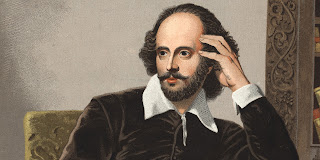What is Shakespeare’s larger purpose in his characterization of Coriolanus in Act I?
 It’s evident that Shakespeare had a larger intention in his characterization of Coriolanus in Act I as he has been chiefly shed lights on. The reader can easily draw conclusions about the character. Coriolanus is first and foremost an aristocratic individual who clearly shows his fierce contempt and absolute venom for the lower class evident through sputtering curse words and insults at them, yet he is still deemed to be their hero despite the absence of his social skills; this is due to his heroic actions during the war that broke out with a neighboring Italian tribe, the Volscians, who are led by Martius' great rival, Tullus Aufiduis. Martuis wins the battle Rome takes the Italian city of Corioles. In recognition of his good deeds, he is granted the name Coriolanus. This heroism and perhaps temperamental recklessness which seemed to plant courage in his soldiers as they were lead by him has definitely resulted in the public’s endearment. It is these qualities that make Coriolanus pictured as a bloodthirsty war machine and a singularly important character for the successful outcome of the war and therefore a noble leader of Rome. Shakespeare has captured Martius’ bravery and valiance in wars which has now paced the way for the reader to picture Coriolanus as a character who is brave, fearsome in battle, and an extremely honorable asset or mythological hero, who values courage and fighting for his country, to whom he is devoted.
It’s evident that Shakespeare had a larger intention in his characterization of Coriolanus in Act I as he has been chiefly shed lights on. The reader can easily draw conclusions about the character. Coriolanus is first and foremost an aristocratic individual who clearly shows his fierce contempt and absolute venom for the lower class evident through sputtering curse words and insults at them, yet he is still deemed to be their hero despite the absence of his social skills; this is due to his heroic actions during the war that broke out with a neighboring Italian tribe, the Volscians, who are led by Martius' great rival, Tullus Aufiduis. Martuis wins the battle Rome takes the Italian city of Corioles. In recognition of his good deeds, he is granted the name Coriolanus. This heroism and perhaps temperamental recklessness which seemed to plant courage in his soldiers as they were lead by him has definitely resulted in the public’s endearment. It is these qualities that make Coriolanus pictured as a bloodthirsty war machine and a singularly important character for the successful outcome of the war and therefore a noble leader of Rome. Shakespeare has captured Martius’ bravery and valiance in wars which has now paced the way for the reader to picture Coriolanus as a character who is brave, fearsome in battle, and an extremely honorable asset or mythological hero, who values courage and fighting for his country, to whom he is devoted.
However, as the reader proceeds further with play, Shakespeare provides further insights into Coriolanus’s character making it easy for one to take note of his immature and inflexible actions such as his unwillingness to compromise his decisions that has set a pattern and thus foreshadowed the next scenes where the public’s camaraderie has been terminated and contempt starts to take over once again due the prodding of two clever tribunes, Brutus and Sicinius, who consider Coriolanus to be the "chief enemy to the people”. Shakespeare was highly successful in reversing the reader’s thinking of Coriolanus as later in the first act he is portrayed as a character who lacks self-awareness and clearly doesn’t reflect on his actions,. He was noted for his major display of austerity and audacious persona.
All in all and Throughout Act I, Shakespeare’s intended purpose of demonstrating Coriolanus’s stagnant and recurring faults combined with his heroic fearless nature within a political theme results in repercussions such as the factors that lead to his exile from his native city. Shakespeare also made connections to Social inequality, warfare and the abuse of political power which was relevant to Ancient Rome and his time era.


It was a fantastic read Yara! You showed a great understanding of the topic and demonstrated what was Shakespeare's larger purpose in his characterization of Coriolanus in Act 1!
ReplyDelete- An impressive quote that was taken away from your blog post was "Shakespeare also made connections to Social inequality, warfare and the abuse of political power which was relevant to Ancient Rome and his time era. "
Making a strong link with the character and historical context of the setting.
- Upon your many impressive aspects that was demonstrated in the play, one of them was the way you kept on connecting the characterisation of coriolanus with the intended effect of Shakespeare, in addition you demonstrated a good range of vocabulary and strong use of language.
- For future analytical blog posts, I would recommend using quotes from the play to back up your claims, having quotes from the play would further enhance your knowledge on the topic.
Nevertheless! Great Job and keep up the hard work!